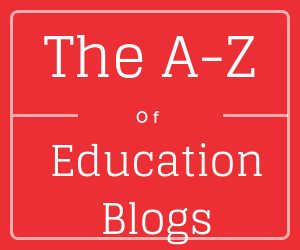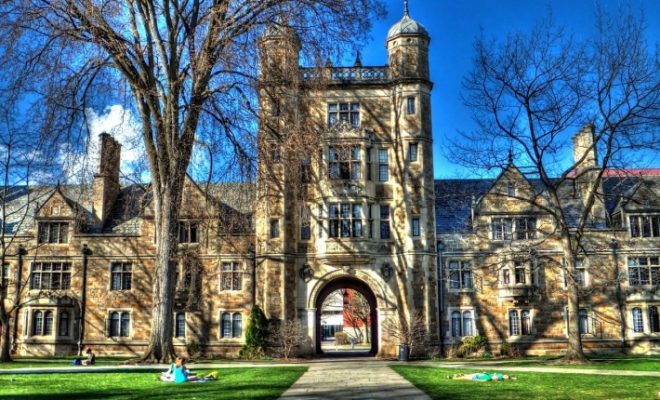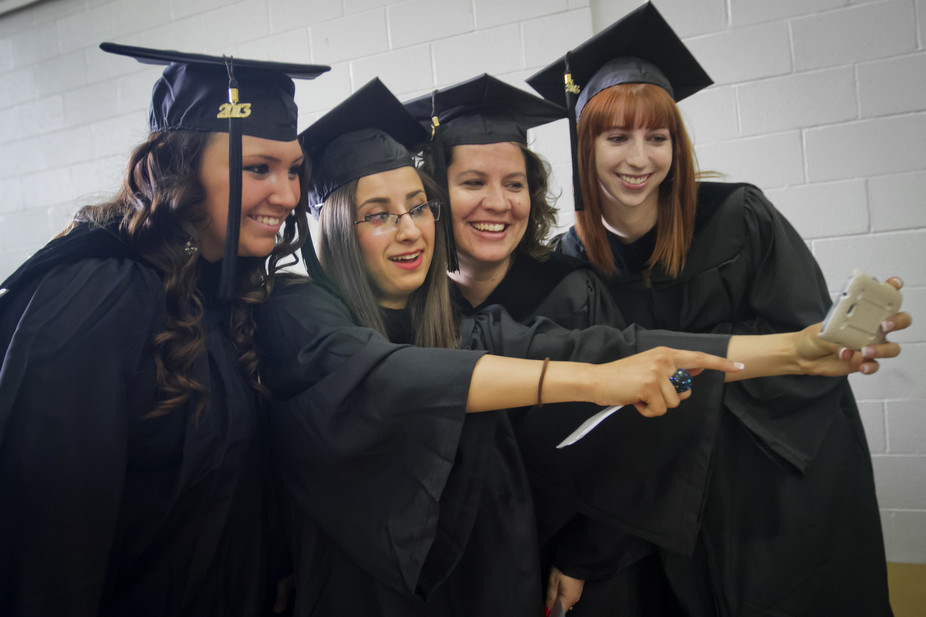2023 Best Master’s in Addictions and Recovery Programs

Click here to find out more about the ranking methodology that we used to compile this list.
Congratulations! If you represent a college or university that is included in this list, please collect your seal below.
Deciding which college to attend can be a daunting task. For many, it will be the most important decision that they make in their lives. To make an informed decision, you have to consider a lot of variables, such as cost of attendance, financial aid, student/teacher ratio, academics, student life, and more. These factors will either positively or negatively impact the quality of education that you receive.
Do you want to acquire a master’s in addictions and recovery, but don’t know what institution you should attend? Well, if you are as ambitious as I was in my late teens, then you want to attend a top school, instead of an average or mediocre one. Fortunately, we have already done the legwork for you. To help you find the right school for your interests and goals, we’ve compiled a list of 2022’s best master’s in addictions and recovery programs.
What institution did we forget? Leave your thoughts in the comment section below.
- Governors State University, University Park, IL
GSU’s master of health science in addictions studies degree program focuses on cultural comprehension and sensitivity, emphasizing evidence-based approaches to address addiction. Learners learn how to plan and manage treatment programs, and classes cover concepts including pharmacology, prevention, counseling, and group methods. Graduates become certified addictions counselors.
Learners earning their master’s degree in addiction studies online take classes such as etiology and epidemiology of substance abuse, clinical models of addiction, and treating coexisting disorders. The degree program culminates in a final holistic examination and a four-credit internship. Qualified learners can finish an internship to earn a criminal justice addictions professional certificate.
The coursework consists of 32 credits and is available in fully online and blended formats. Many learners take two classes at a time. But, GSU encourages learners to work at their own pace. The addictions studies degree program is fully sanctioned by the Illinois Alcohol and Other Drug Abuse Professional Certification Association and the National Addiction Studies Accreditation Commission.
Candidates must hold a minimum 2.5 undergraduate GPA. Prerequisites consist of three credits of introductory psychology; three credits in psychology, sociology, social work, or anthropology; six credits of biological sciences or chemistry; a statistics or research methods class; and nine credits of addiction-related classwork. Candidates must also submit an individual statement.
- Liberty University, Lynchburg, VA
The largest private, nonprofit institution in the United States, Liberty, is an evangelical Christian institution. The school serves more than 100,000 learners online and on campus. Liberty’s School of Behavioral Sciences has an online master of arts in the addiction counseling degree program.
Coursework covers substance abuse and addiction counseling concepts, such as counseling methods, treatment, and the recovery process. Classes consist of assessment methods in counseling, biological aspects of addiction and recovery, and diagnosis and treatment planning of addictive disorders.
Learners earning a master’s in addiction counseling online finish at least 58 credits, including 27 credits of core classes, 18 credits of concentration classes, and three credits of electives. Distance learners can finish the degree in a couple of years. Many graduates are eligible to become certified substance abuse counselors, and many learners pursue careers as counselors, case managers, and mental health professionals. Learners can finish an additional 12 credits of classwork to meet the requirements for licensure as a substance abuse treatment provider in Virginia.
Coursework is available entirely online, and the degree program includes an internship and optional intensives. Transfer learners can bring in a maximum of half of the degree program requirements from previous studies. Prerequisites consist of three credits of statistics. Candidates must hold a bachelor’s degree earned with a minimum 3.0 GPA. Liberty offers benefits and discounts to military members and veterans.
- University of North Texas, Denton, TX
The University of North Texas has a master of science in rehabilitation counseling for individuals who are currently working in a related setting. The degree program investigates counseling services, including physical, mental, developmental, cognitive, and emotional disabilities. Learners learn how to help clients reach their individual, career, and independent living objectives.
This online addiction counseling master’s degree requires learners to finish 36 credits, including three credits of electives, a three-credit practicum, and a six-credit internship. Learners also get more than 700 hours of supervised fieldwork experience and can finish an optional thesis. Classes consist of rehabilitation in a multicultural society, disability issues in human development, group work and the rehabilitation process, principles of psychiatric rehabilitation and recovery, and case management and rehabilitation services.
UNT’s addiction studies degree program is nationally sanctioned by the Council on Rehabilitation Education. The coursework meets the requirements for national licensure as a rehabilitation counselor and for licensure as a professional counselor in Texas. The institution delivers classwork asynchronously, and learners can finish online classes at their own pace.
Candidates must have a minimum 3.0 undergraduate GPA. Prospective learners must also partake in an interview and submit an individual statement, two letters of recommendation, and a current resume.
- Monmouth University, West Long Branch, NJ
Monmouth is a privately run institution that has a master of arts in addiction studies, which focuses on wellness, individual growth, and pathology for a diverse population. Learners enrolled in Monmouth’s master’s degree in addiction studies online finish 33 credits, including classes in theories of counseling, psychopathology, community mental health, treatment of alcohol and drug abuse, and substance awareness in schools. Learners also finish a three-credit professional counseling practicum.
Monmouth has the degree program in fully online and blended formats, the latter of which blends online classwork with in-person instruction. The institution encourages learners to finish classwork at their own pace, and online learners can study on a full-time or part-time basis. The addiction studies degree program holds accreditation from the International Coalition of Addiction Studies Educators and the National Addiction Studies Accreditation Commission.
Candidates must hold a bachelor’s degree earned with a minimum 3.0 GPA. Prerequisites consist of 12 credits in psychology-related classwork, including individuality theory, statistics, abnormal psychology, and research methods. Prospective learners must submit an individual narrative, two letters of recommendation, and official GRE scores. Monmouth waives the GRE requirement for candidates who hold a master’s degree. Candidates must partake in a group interview. Incoming learners can begin in the fall, spring, or summer.
- University of South Dakota, Vermillion, SD
The University of South Dakota is the state’s leading institution; it serves more than 10,000 learners and has an array of online degrees, including a master of arts in addiction studies. The coursework covers concepts like addiction studies research, alcohol and drug counseling theories, and wellness recovery. Classes consist of psychopharmacology of addiction, case management and assessment of co-occurring disorders, psychopathology and addiction, and relapse prevention.
Distance learners can pursue a 45-credit standard path designed for individuals without licensure or a 33-credit advanced path that is well-suited for licensed addiction counselors and mental health professionals who hold level II or level III chemical dependency licensure. Graduates are eligible for licensure in South Dakota, and most pursue leadership positions in addiction and prevention education. The addiction studies degree program holds accreditation from the National Addiction Studies Accreditation Commission.
Learners can finish USD’s master’s degree in addiction studies online in an asynchronous format via the Desire2Learn platform. Distance learners get access to a learner counseling center, an online writing center, and digital library resources and supports. Candidates must hold a bachelor’s degree and submit a statement of purpose, a current resume, and three letters of recommendation. Admission requirements also consist of a criminal background check.
- Virginia Commonwealth University, Richmond, VA
VCU is a state research institution established in 1838; the institution serves more than 31,000 learners. The international master of science in addiction studies degree program is a collaboration between VCU, King’s College London, and the University of Adelaide in Australia. The degree program offers cross-cultural exposure to prevention, treatment, research, and policy issues.
Learners investigate and compare international perspectives surrounding effective addiction prevention and treatment practices. The coursework includes classwork in public health issues and approaches to addictions, the biological basis of addiction, addiction policy, and pharmacotherapies. Learners take a research methodology class and finish a 12-week, six-credit final research project.
Learners can finish this master’s degree in addiction studies online without visiting campus. The degree program is comprised of 36 credits, and learners take classes synchronously and in a prescribed sequence. Full-time learners can graduate in one year, while part-time learners normally finish the degree program in two years.
Candidates must hold a bachelor’s degree from a regionally sanctioned school (earned with a minimum 3.0 GPA) or an international level 2A or one honors degree. VCU has an array of payment plans and scholarships. Enrollment in this degree program is limited to 40 learners each year.
- Regent University, Virginia Beach, VA
Regent is a Christian research institution, which has a master of arts in human services with a concentration in addictions counseling. This non-licensure counseling degree investigates intervention methods in ministry and professional recovery. Many graduates go on to pursue careers as substance abuse counselors, and clinical case managers.
Learners earning a master’s degree in addiction studies online finish at least 30 credits. Regent has classes in eight-week sessions, both asynchronously and synchronously. Online classwork involves real-time discussions, group projects, and podcast lectures. The coursework includes classes in multicultural awareness and individual diversity, helping skills and methods, process addictions, and advanced counseling skills and methods.
Learners investigate human growth and development and prepare to assess, diagnose, and treat distinct types of misuse, abuse, and dependency. The degree program culminates in a final three-credit capstone and field experience class. Part-time learners can graduate in two years, and full-time learners can earn their degrees in one year.
Candidates must hold a bachelor’s degree from a regionally sanctioned institution earned with a minimum 3.0 GPA. Prospective learners with a bachelor’s degree in counseling, psychology, or a related human behavioral field obtain preference.
- University of the Cumberlands, Williamsburg, KY
The school’s master of arts in addiction counseling is sanctioned by the Council for Accreditation of Counseling and Related Educational Programs. Learners enrolled in a master’s in addiction counseling online investigate concepts like ethics, humanity, client-centered counseling, diversity, and social alter. Coursework covers psychological assessment of human growth and development and counseling. Learners learn how to select assessments to assess and diagnose individuals, develop appropriate treatment plans, and apply addiction counseling intervention and prevention theories.
The coursework includes classes in psychopharmacology and addictions, motivation and alter, family therapy in addiction treatment, and spirituality and values in counseling. Many program graduates become licensed professional counselors or licensed/certified addiction counselors.
The degree program requires participants to finish 60 credits of classwork. Transfer learners can apply a maximum of 30 eligible credits earned from another regionally sanctioned institution. The institution has online classes in synchronous and asynchronous formats. Learners normally take a maximum of two classes per eight-week term. Candidates must hold a bachelor’s degree from a regionally sanctioned institution earned with a minimum 3.0 GPA.
- Wright State University, Dayton, OH
Wright State is a state research institution that grants admission to more than 15,000 learners annually and has a master of rehabilitation counseling with a chemical dependency major. The degree program focuses on addictions, rehabilitation, and counseling theory and practice.
Classes consist of marriage and family counseling, systems theory, counseling for lifespan development, psychosocial rehabilitation, and vocational evaluation and assessment. The degree program prepares learners to take the certified rehabilitation counselor the national counselor examination. Students can also earn their Ohio professional counselor license. Learners often pursue careers as chemical dependency and rehabilitation counselors, prevention specialists, and employee assistant counselors.
The degree program consists of 60 credits, with all classwork available online. Learners also finish a 100-hour on-site practicum. This master’s in addiction counseling online degree program is sanctioned by the Council for Accreditation of Counseling and Related Educational Programs.
Candidates must hold a bachelor’s degree earned with a minimum 2.7 GPA and a minimum 291 combined GRE score or a minimum 403 scaled MAT score. Wright State waives test score requirements for candidates with a GPA of 3.3 or higher. Prospective learners need to partake in a group interview; admitted learners can begin in the fall or spring.
- Washburn University, Topeka, KS
Established in 1865, Washburn is a publicly funded, independently governed institution, which provides more than 200 programs and grants admission to over 6,000 learners. Washburn supervises a master of arts in a human services degree program with an emphasis in addiction counseling. Learners focus on the application of research and theory, preparing to become licensed master’s addiction counselors and licensed clinical addiction counselors.
The degree program holds approval from the Kansas Behavioral Sciences Regulatory Board. Learners earning their master’s in addiction counseling online take classes like a diagnosis of substance utilize disorders, advanced pharmacology and substance abuse disorders, professional ethics and practice, and lifespan development. Learners finish two practica, a supervision and leadership class, and an applied research class. Coursework is available entirely online, and learners finish fieldwork in their community.
The coursework comprises 36 credits, and WU accepts a maximum of 12 eligible transfer credits. Learners can finish the degree program part-time or full time in one to two years. Candidates must hold a bachelor’s degree—preferably in human services, social work, psychology, or nursing—and a minimum 3.0 GPA. WU has an early-entry choice for college seniors who have finished at least 88 credits of a bachelor’s degree program in a field connected to human services.







